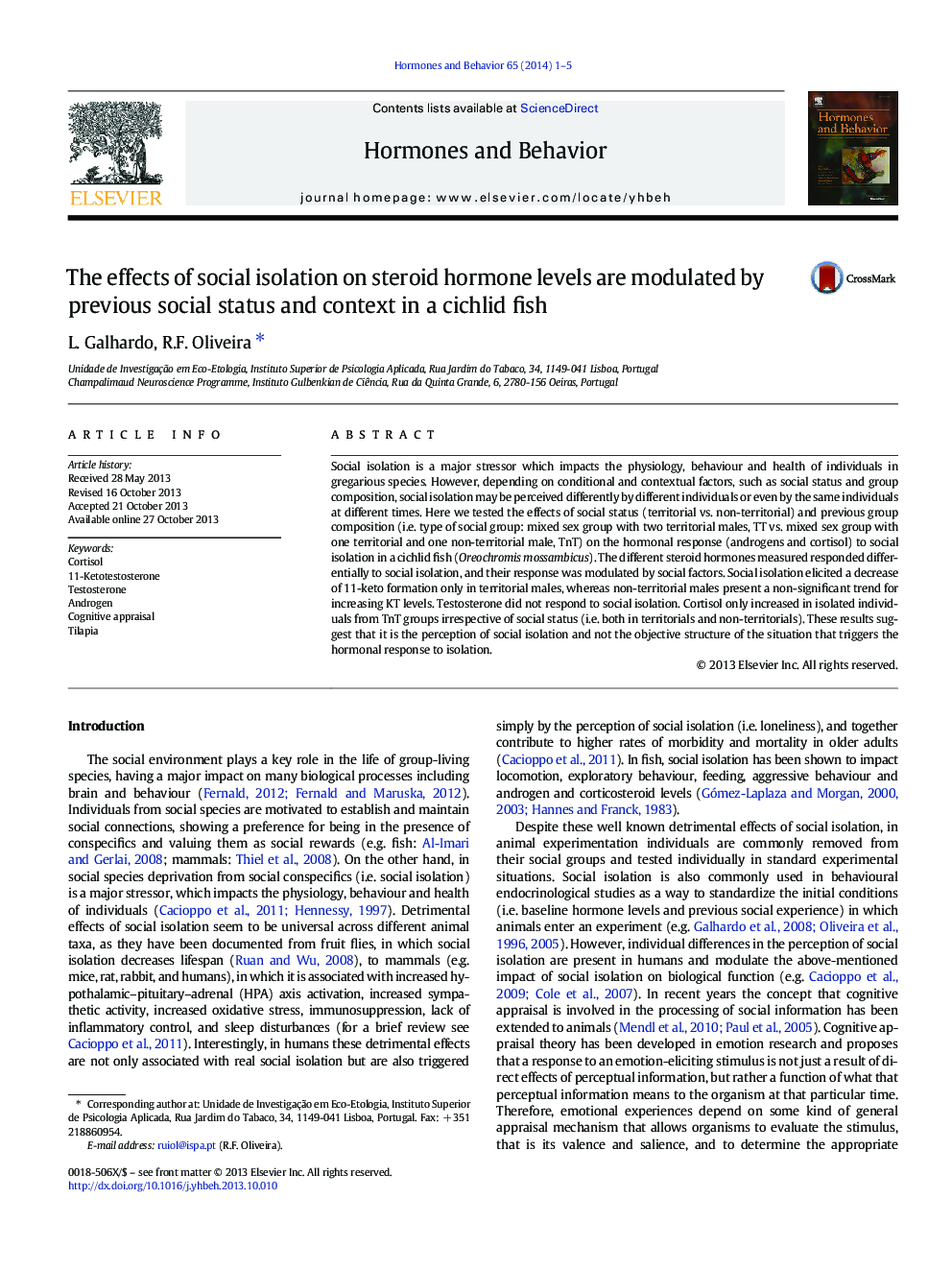| Article ID | Journal | Published Year | Pages | File Type |
|---|---|---|---|---|
| 322726 | Hormones and Behavior | 2014 | 5 Pages |
•Effects of social isolation on steroid hormones are modulated by social factors.•Testosterone does not respond to social isolation under these conditions.•Isolation decreased KT in territorial males but not in non-territorials.•Isolation induced cortisol increase is modulated by prior social context.•Perceived social isolation and not isolation per se activate the hormonal responses.
Social isolation is a major stressor which impacts the physiology, behaviour and health of individuals in gregarious species. However, depending on conditional and contextual factors, such as social status and group composition, social isolation may be perceived differently by different individuals or even by the same individuals at different times. Here we tested the effects of social status (territorial vs. non-territorial) and previous group composition (i.e. type of social group: mixed sex group with two territorial males, TT vs. mixed sex group with one territorial and one non-territorial male, TnT) on the hormonal response (androgens and cortisol) to social isolation in a cichlid fish (Oreochromis mossambicus). The different steroid hormones measured responded differentially to social isolation, and their response was modulated by social factors. Social isolation elicited a decrease of 11-keto formation only in territorial males, whereas non-territorial males present a non-significant trend for increasing KT levels. Testosterone did not respond to social isolation. Cortisol only increased in isolated individuals from TnT groups irrespective of social status (i.e. both in territorials and non-territorials). These results suggest that it is the perception of social isolation and not the objective structure of the situation that triggers the hormonal response to isolation.
